Anti-Education: On the Future of Our Educational Institutions 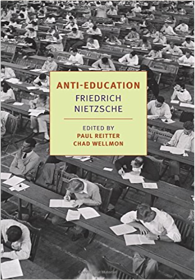 In 1869, at the age of twenty-four, the precociously brilliant Friedrich Nietzsche was appointed to a professorship of classical philology at the University of Basel. He seemed marked for a successful and conventional academic career. Then the philosophy of Schopenhauer and the music of Wagner transformed his ambitions. The genius of such thinkers and makers—the kind of genius that had emerged in ancient Greece—this alone was the touchstone for true understanding. But how was education to serve genius, especially in a modern society marked more and more by an unholy alliance between academic specialization, mass-market journalism, and the militarized state? Something more than sturdy scholarship was called for. A new way of teaching and questioning, a new philosophy . . . What that new way might be was the question Nietzsche broached in five vivid, popular public lectures in Basel in 1872. Anti-Education presents a provocative and timely reckoning with what remains one of the central challenges of the modern world. God Is Dead. God Remains Dead. And We Have Killed Him. 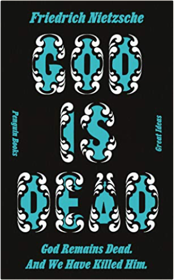 Great Ideas Man Alone With Himself 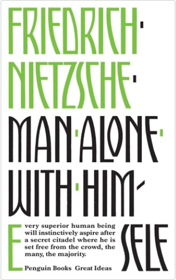 The Portable Nietzsche 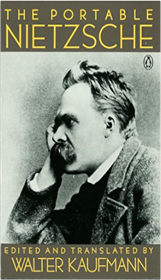 Thus Spoke Zarathustra 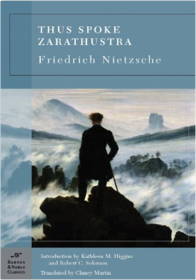 Considered by many to be the most important philosopher of modern times, Friedrich Nietzsche influenced twentieth-century ideas and culture more than almost any other thinker. His best-known book, Thus Spoke Zarathustrapublished in four parts in the last two decades of the nineteenth centuryis also his masterpiece, and represents the fullest expression of his ideas up to that time. A unique combination of biblical oratory and playfulness, Thus Spoke Zarathustra chronicles the wanderings and teachings of the prophet Zarathustra, who descends from his mountain retreat to awaken the world to its new salvation. Do not accept, he counsels, what almost two thousand years of history have taught you to call evil. The Greeks knew better: Goodness for them was nobility, pride, and victory, not the Christian virtues of humility, meekness, poverty, and altruism. The existence of the human race is justified only by the exceptional among usthe superman,” whose self-mastery and strong will to power” frees him from the common prejudices and assumptions of the day. These and other concepts in Zarathustra were later perverted by Nazi propagandists, but Nietzsche, a despiser of mass movements both political and religious, did not ask his readers for faith and obedience, but rather for critical reflection, courage, and independence. Kathleen M. Higgins and Robert C. Solomon are both professors of philosophy at the University Texas at Austin. Together, they have written What Nietzsche Really Said and A Short History of Philosophy and co-edited Reading Nietzsche. |


Delicious Library
Collection Total:
3,640 Items
3,640 Items
Last Updated:
Nov 2, 2025
Nov 2, 2025
 Made with Delicious Library
Made with Delicious Library